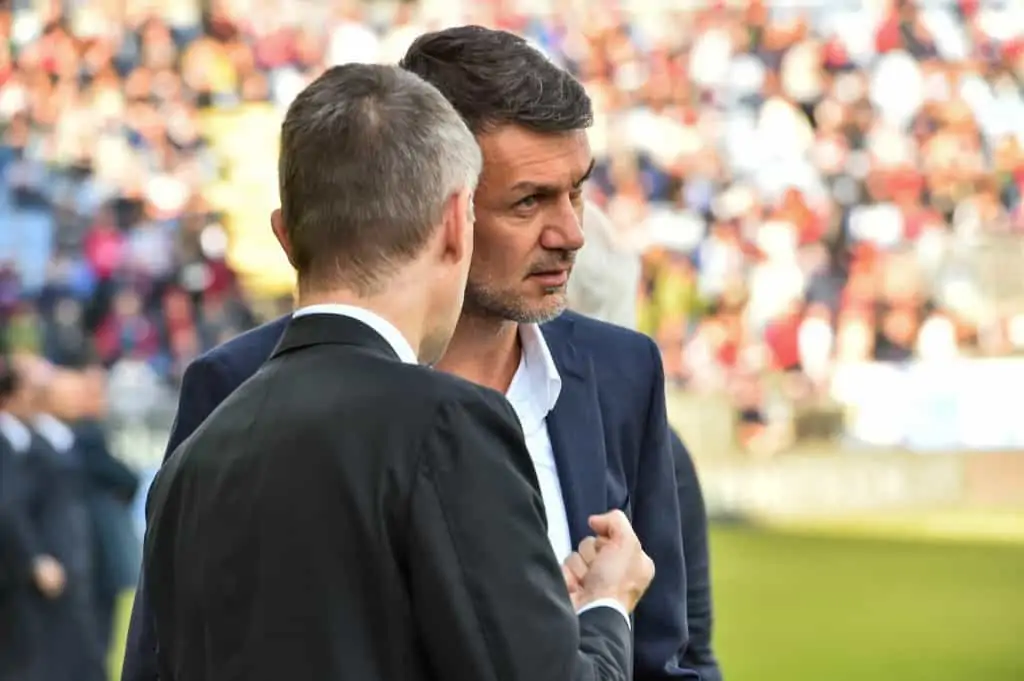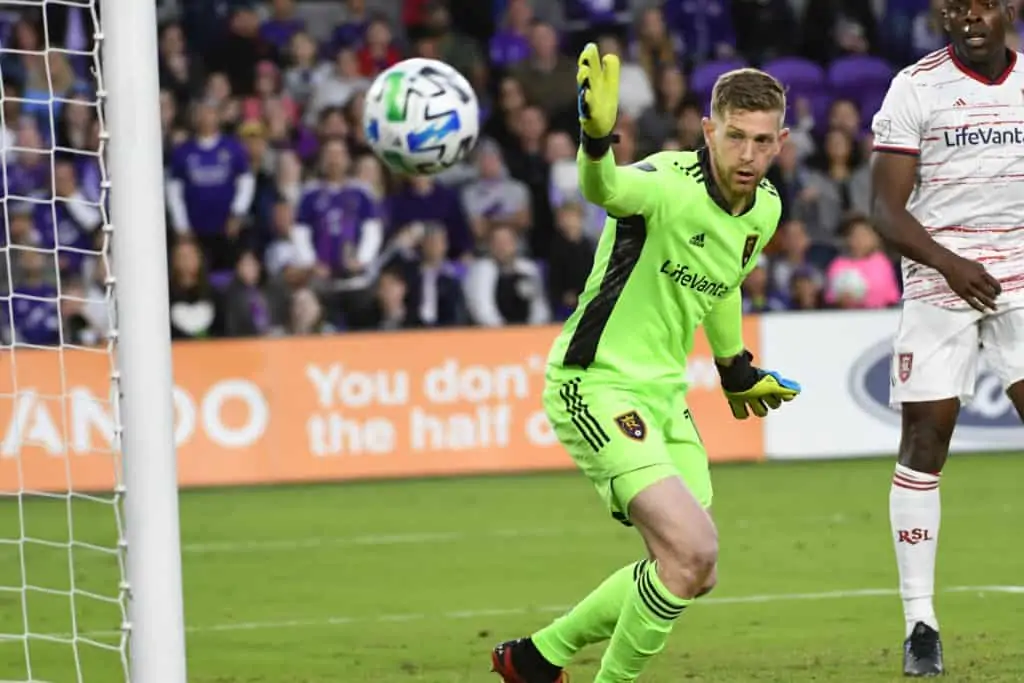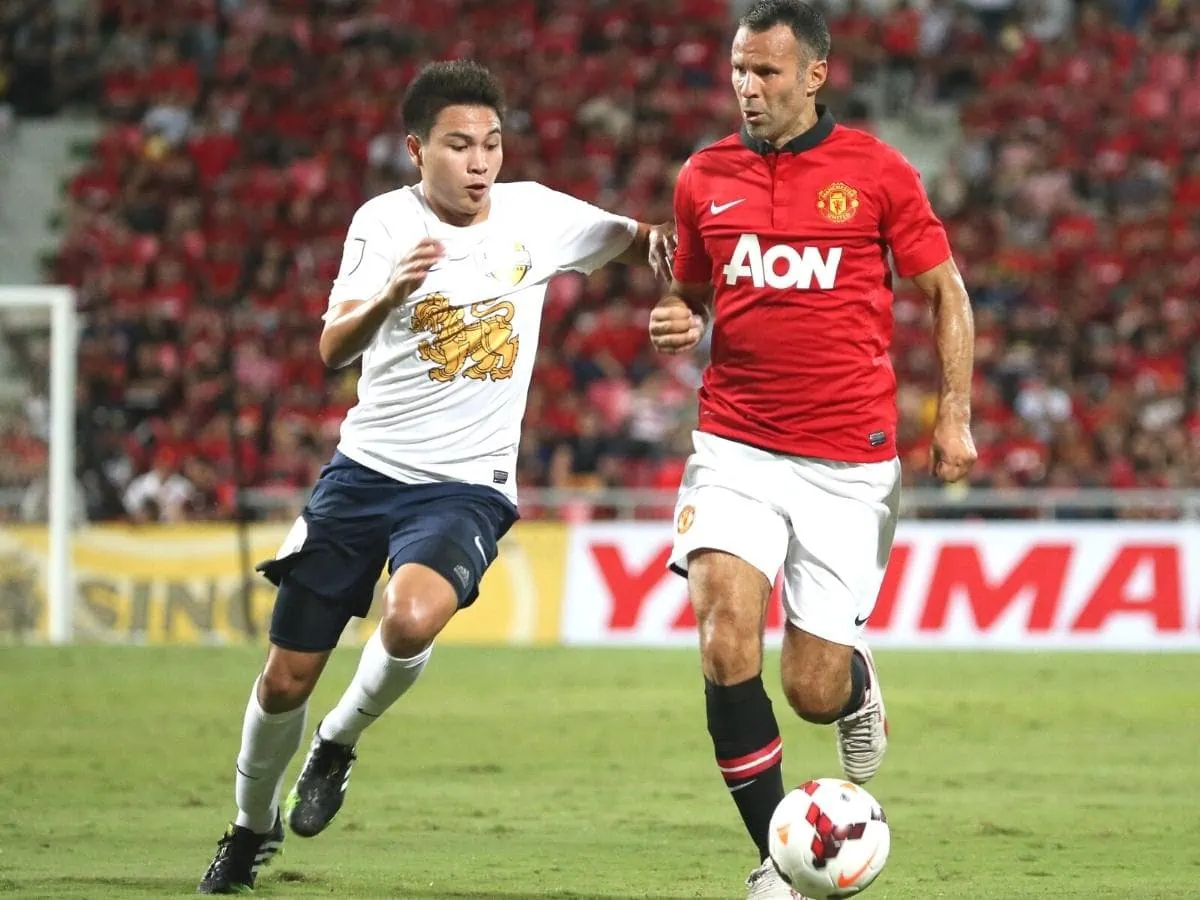Share the post "Soccer Retirement (Young or Old Player’s Game)"
The average age a soccer player retires is 35 due to injury, loss of pace, or new opportunities as a coach, manager, or commentator.
Soccer players retire due to injury, age, and other career interests.
The career of a soccer player can be short in comparison to a normal person. Many of us working will expect to retire in our 60s, and some will continue in their 70s.
With retirement age growing ever older, it’s a different game for sports professionals.
Below is an image of an all-time great soccer player who continued to play for AC Milan until 41.

What age do female soccer players retire?
Female soccer players retire slightly earlier than males at 30 years old on average.
From the chart below – taken from the playing age of females at the 2012 Olympics, there is a sharp drop-off at 30, indicating the average retirement age of 30.

What age do goalkeepers retire?
On average, goalkeepers retire at 38 years old, which is 3 years older than an outfield soccer player.
Goalkeepers require different physical attributes to play soccer, they don’t need to sprint like the other outfield players.
The sprinting aspect normally halts a player’s career, allowing them to continue for a few more years.
There is a balance; compared to outfield players, goalkeepers normally get a place in the side when they’re 25 and over.
This is because there is one position that takes years of experience to perform to the highest level.

Why do soccer players retire so early?
Soccer retirement seems early, but soccer is a fast and physical game, and humans slowly lose the qualities required to compete with the younger players.
Soccer at the professional level requires the best athletes, and the human body performs the best in the ’20s and ’30s.
From 40 onwards, it’s difficult to maintain the speed.
Why do male soccer players retire at 35?
Soccer players reach their peak age in their late 20s, and from 30 onwards, they slowly lose the physical qualities required as a pro.
Since there’s a lot more money in the modern game, soccer players who make it as pros can retire after they’ve played it.
It wasn’t always the case, and it won’t be the same for those players in the lower leagues.
Many will have a break after soccer but eventually need to return to work to support themselves.
Early retirement from soccer due to Injury
Early retirement for a soccer player can happen when the pain is too much for players to continue or their body can’t reach the level required.
The physical demands of a soccer game can take their toll on players. One bad injury can cause severe problems, enough to halt their career.
There are fewer cases of early retirement with the advancement of science and surgery. A surgeon can repair ligaments, cartilage, and other debilitating injuries.
Injury can cause retirement at any age, which can be down to luck, accident, incident, or even poor preparation.
Injuries that have caused this group of soccer players to retire are;
- Knee Ligament
- Compound Fracture
- Knee Injury
- Double-Leg Compound Fracture
- Broken Ankle
- Double Leg Break
- Cruciate Ligaments
We can do our best to prevent injuries with training, diet, recuperation, and know-how. But sometimes, players are unlucky.

What makes a soccer player want to retire without injury?
Some players’ key feature is their pace. Without that extra yard of pace to be able to beat a player, they lose the skill that took them to the top.
If a player has many attributes to their game, like passing, shooting, and reading the game, they can prolong their career.
So they can use their experience to carry on playing longer than others. Wise soccer players that have a ‘soccer brain’ are a valuable asset.
They can read the game quicker than the younger ones. Enabling them to make quicker decisions on the field, which can decide a game.
When a player reaches their 30s, retirement is often not too far away. How they have looked after their body will affect how much longer they can play.
Players can continue after they’ve dropped from their peak by playing in the lower leagues or to a different country where the competition is less.
Normal retirement for a soccer player is from 33 to 37 years old. The average age of retirement is 35 years old.

The average age a soccer goalkeeper retires
The following chart, brought together by u/Its_Louis on Reddit, collected the data from FIFA to demonstrate when the goalkeepers retire.
Most of them play on till they’re 38 and then retire in the following years.
| Age | Goalkeeper Percentage Of Retiring (%) |
|---|---|
| 34 | 6% |
| 35 | 12% |
| 37 | 25% |
| 38 | 58% |
| 39 | 79% |
| 40 | 88% |
| 41 | 95% |
| 42+ | 100% |
Goalkeepers often play on till their 40s, and their knowledge of the game is valuable to the team. They can direct the backline to minimize the threat more effectively.
One legend of the game still playing is Gianluigi Buffon of Juventus, born in 1978 but still top of his game.
What do soccer players do after retiring?
Many players will continue in the game as a coach, pundits, advisors, or anything in the game of soccer.
Most soccer players don’t want to retire as professionals because they fear the unknown and their future – they lose their status and routine.
Soccer is a fundamental part of a player’s life; they sleep, eat, and train for soccer. So what do they do when they retire?
Because of their love of the game and they feel they’ve got more to offer with the experience they have.
Others will be glad to put their feet up and rest those weary legs that have been drained for many years.

Is 40 too old to play soccer?
If you’re physically in shape and are still contributing to your team, 40 is not too old to play soccer.
Many great players have been effective at 40 when playing soccer.
Ryan Giggs retired from the professional level of playing for Manchester United at 40 years old. He could have easily carried on for a few more years at a smaller team.
As mentioned before, the great Maldini retired as a pro at 41 – so there’s still time to play for most of us.
What age do soccer players peak?
Soccer players mostly peak in their late 20s from 27 to 29. Many players hit their peak earlier and some into their 30s. It depends on the type of player and their development.
Share the post "Soccer Retirement (Young or Old Player’s Game)"
Joel is a seasoned soccer journalist and analyst with many years of experience in the field. Joel specializes in game analysis, player profiles, transfer news, and has a keen eye for the tactical nuances of the game. He played at various levels in the game and coached teams - he is happy to share his insight with you.



